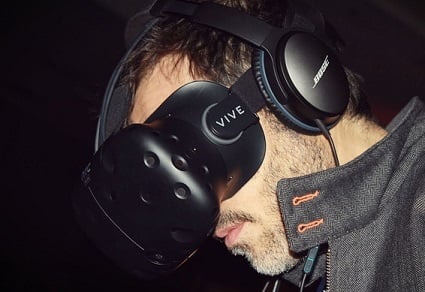
Two of New Zealand’s most eminent organisations have partnered to launch state-of-the-art training technology

Two of New Zealand’s most prominent organisations have joined forces to create state-of-the-art training technology with the latest development already operational in one workplace.
Dairy giant Fonterra partnered with engineering firm Beca to develop a virtual reality health and safety training solution which lets employees navigate manufacturing and distribution sites remotely.
“With this solution, we can replicate the physical environment of our sites, so staff can undertake virtual health and safety training in an extremely immersive and realistic way,” says Greg Lazzaro, Fonterra’s director of health and safety, resilience and risk.
“That means our people can learn about and identify potential hazards more quickly than ever, encouraging more engaged employees and better workplace safety.”
The technology is being implemented at Fonterra’s Tirau site following a successful pilot and will be rolled out across additional locations in the near future.
It’s hoped the technology will replace a significant portion of the hands-on health and safety training that is often costlier for Fonterra and less effective overall.
While virtual reality may seem like a novelty at first, Lazzaro says both employees and leaders quickly embrace the technology once they realise its true value.
“While our health and safety performance continues to improve we are always looking for ways to reduce risk to our employees,” he says. “Using VR means our people can experience hazards in a realistic simulated environment, enhancing learning experiences, without being put in harm’s way.”
Andrew Cowie, project manager for Beca, agrees that the technology is the future of health and safety training and can be easily replicated in other workplaces and training areas.
“Walmart now trains using VR, American footballers are using it and so is the military,” he says. “Our clients are increasingly interested in the application of VR technologies and the value it can add to their businesses.”
In this case, Cowie says using VR for training is ideal as it is effective whilst being both cost and time efficient.
“The reality capture for these training tours is done easily with a handheld camera and the VR simulation works via a smart phone using a simple cardboard headset,” he says.